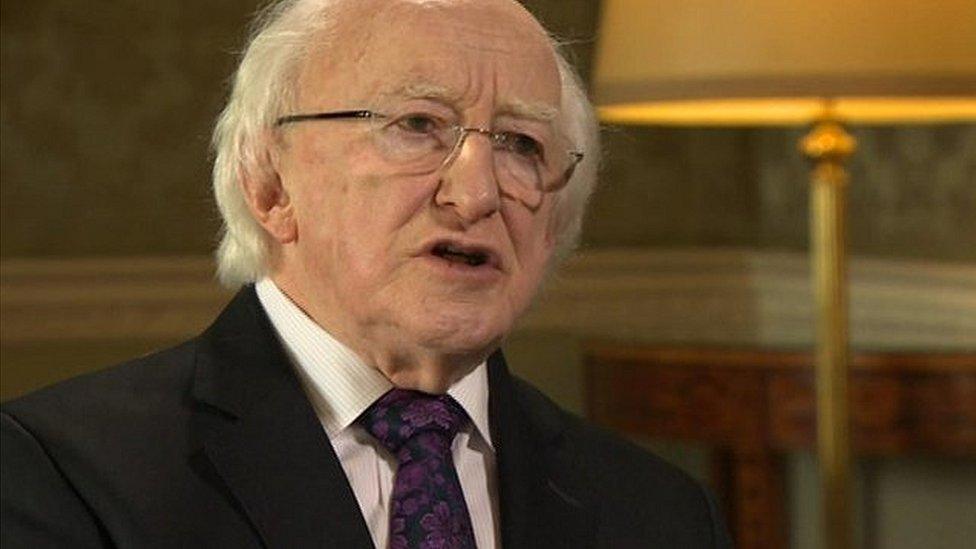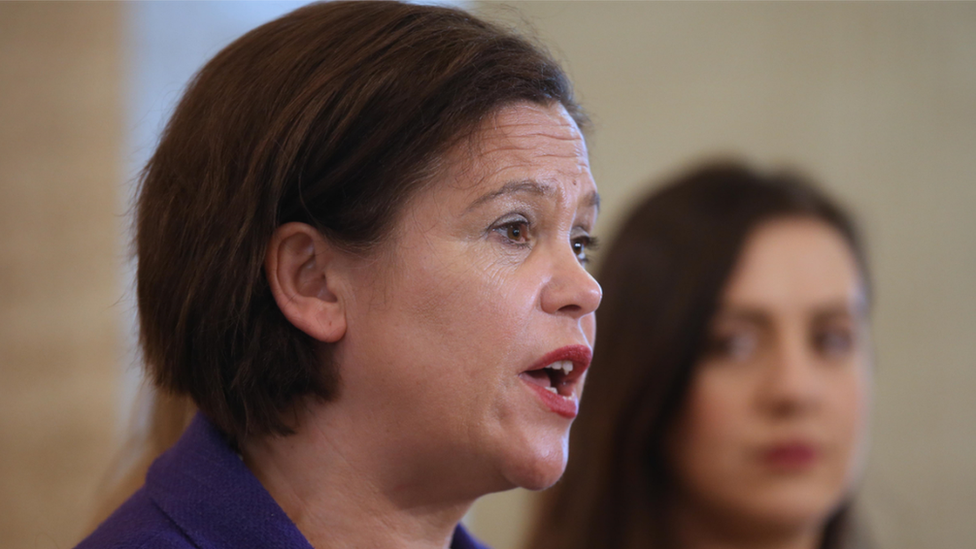Sinn Féin to challenge Higgins in Irish presidential election
- Published

Michael D Higgins' occupations have included sociology lecturer and poet
Sinn Féin will put forward a candidate for the Irish presidential election, the party has confirmed.
The party has appointed a presidential election committee to oversee the selection process.
David Cullinane, a member of parliament in the Republic of Ireland, has been selected as the chairperson of the committee.
On Tuesday, sitting president Michael D Higgins confirmed he will stand for re-election for a second term.
The 77-year-old former trade unionist was elected in 2011 for a seven-year term.
In a statement, Sinn Féin leader Mary Lou McDonald said there is "an appetite for political and social change".

Mary Lou McDonald says the party wants to have a "progressive conversation about building a new, agreed and United Ireland" during the campaign
"Ireland and the world have changed in the seven years since we last had a presidential election," she said.
"A new generation has become politically engaged and have been central to changing Ireland for the better as we saw in the marriage equality referendum and in the referendum to remove the Eighth Amendment."
She added that the party wants to have a "progressive conversation about building a new, agreed and United Ireland" during the campaign.

Irish president to face challenger in unusual poll
By Luke Sproule, BBC News NI
Sinn Féin's decision to contest Ireland's presidential election means an incumbent president will face a challenger for just the second time ever.
In 1966, Éamon de Valera narrowly beat Tom O'Higgins, but all other Irish presidents who have chosen to stand for a second term have been re-elected unopposed.
It adds an element of the unknown to this year's contest.
It is an unusual feature of the Irish presidency, with almost all other presidents in democracies required to go to the people before being given a renewed mandate.
So why did this trend persist throughout the 20th Century, with the exception of 1966?
Read more here

The main opposition party, Fianna Fáil, and the Irish Labour Party have expressed support for President Higgins.
The leading government party, Fine Gael, is expected to do the same.
Ms McDonald said that younger citizens, particularly those under the age of 25, should be given the opportunity to decide who the Irish president is.
"It is simply wrong that citizens be denied their right to vote because the political establishment of Fianna Fáil, Fine Gael, and Labour do not want an election," she said.
"A presidential election can be a very positive thing for Ireland."
If an election does go ahead, it is expected to take place on 25 or 26 October.